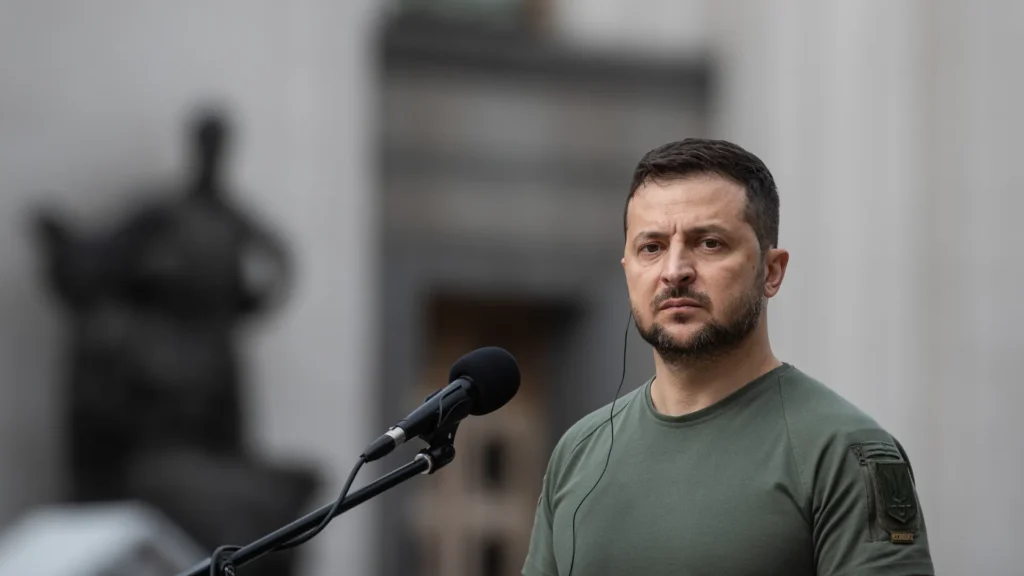European leaders expressed tentative optimism following a virtual meeting with U.S. President Donald Trump on Wednesday, just two days before his scheduled talks with Russian President Vladimir Putin in Alaska aimed at ending the war in Ukraine.
Trump reportedly told leaders from the UK, France, Germany, Italy, Finland, Poland, the EU, and NATO that his goal for the summit was to secure a ceasefire between Moscow and Kyiv. French President Emmanuel Macron said the discussion helped “clarify [Trump’s] intentions” and allowed Europe to “express our expectations,” adding that Trump agreed any territorial issues must involve Ukrainian President Volodymyr Zelensky and include security guarantees.
While the Europeans have been excluded from the hastily arranged summit, the call represented a last-minute push to ensure Ukraine’s interests and European security remain central to negotiations. Trump called the meeting “a ten” and warned Russia of “very severe” consequences if it continued its aggression. He added that if Friday’s talks went well, he would seek a follow-up meeting involving both Putin and Zelensky.
Still, European leaders remain wary. Both German Chancellor Friedrich Merz and Polish Prime Minister Donald Tusk stressed Ukraine’s direct involvement in any final decisions. Tusk warned against trusting Russia, while Merz emphasized the need to increase pressure should Moscow refuse concessions.
Concerns persist over Trump’s past comments about potential “land-swapping” between Kyiv and Moscow a move that could see Ukraine cede territory in exchange for peace. Moscow’s position, reaffirmed Wednesday by Foreign Ministry spokesperson Alexey Fadeev, demands Kyiv’s withdrawal from four occupied regions and a pledge to abandon NATO ambitions terms rejected by Ukraine and its allies.
Zelensky, citing Russia’s continued offensives, warned that any concessions would only embolden future invasions. He urged stronger sanctions and security guarantees, with the UK and France leading efforts to form a “Coalition of the Willing” capable of deploying a reassurance force once fighting stops.
Even Trump appeared skeptical about fully halting Russian attacks on civilians, admitting, “I’ve had that conversation with him… but then I go home and see that a rocket has hit a nursing home… so I guess the answer… is probably no.”
The Alaska summit is set to be a pivotal and potentially tense test of whether diplomacy can halt the war.

